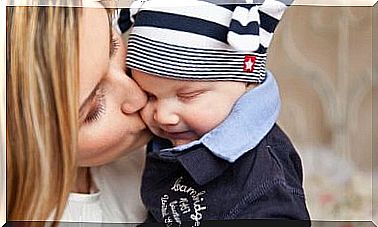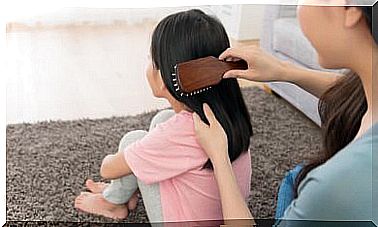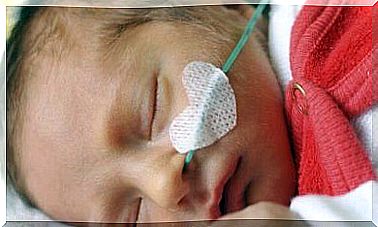Acute Mammitis, He Just Wants To Be With Mom

Probably your son, who is already around two years old, will not be separated from you for a minute, and every time you cannot be together it will be all a drama. If you are in this situation, your baby is in a phase of acute mastitis, do you know what it is?
What is mastitis?
We can say that a child has mastitis when he has a sufficient degree of physical autonomy to be able to move around, constantly looking for mother and poorly tolerating separation from her. Even being able to stay with other people with whom you also have a relationship of trust.
A baby cannot fend for himself and needs the protection of his parents, especially in the first months. The mother is his whole world, his attachment figure. But, as he grows and acquires new skills, he needs less help and becomes more independent.
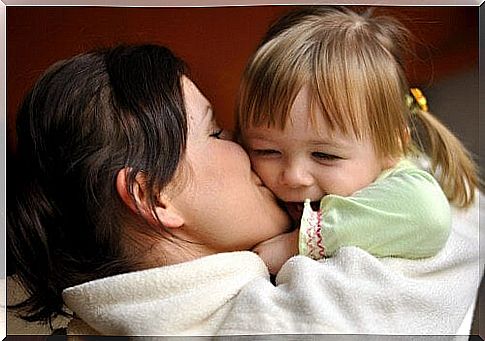
When does mastitis occur?
The main peak of mastitis is found between 10 and 18 months, in this phase children begin to be more self-aware and become more autonomous. This means that they can now walk, run and move, their main objective is to explore the world around them and always accompanied by their mother.
The next phase can be found a little later, specifically between two and three years. Babies relate both to the world around them and to the people who live in it. All this involves meeting a lot of new people and they feel more comfortable if their mother is around to give them security.
And finally, a third stage of mamitis can occur when they are four or five years old, at which time they want to do everything with mom, go shopping with mom, cook with mom, … it is a kind of “crush” with mom that in psychoanalytic theory it has received its own name.
In addition to these phases of mastitis, each and every child suffers. There are times that at certain times they can suffer moments of regression, that is, a phase of mastitis, which are nothing more than periods of insecurity in which they cling to mother to try to regain their internal stability.
There are many reasons that can trigger these situations of excessive attachment, some due to the evolutionary moment they are going through, or to other external reasons, such as illness or jealousy before the arrival of a baby brother.
The good news is that these are often temporary episodes that are easy to fix.
What can we do with acute mamitas?
The solution is very simple: patience and a lot of common sense.
We must help our son to regain his lost confidence in himself, and try to make him able to be with other people.
It is also very important that he learns to be alone with dad or grandparents, so we must leave them alone. First we will try to get them to do pleasant things, like play or read stories and after a few days they will be able to do more routine things.
The best way to give our son independence, at this young age, is through play.
We can start playing with our child, with constructions, with colored balls, puzzles or something that we know he likes and entertains him. And then when he is entertained, get up and separate ourselves from him a few inches, then a few meters, without stopping talking to him so that he can see that we are there with him. It is simply a matter of time, love and a lot of patience.
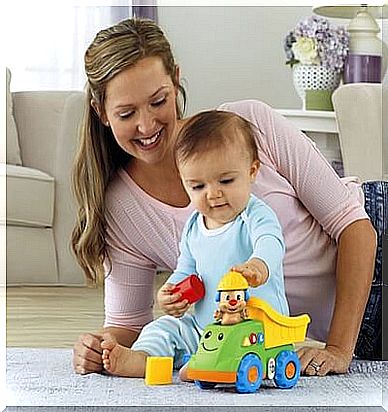
What we should never do …
In this evolutionary phase of our son, the father also suffers a lot. It’s hard that he just wants to be with his mother, and doesn’t want to do anything with him. We must be very clear that at this age the child is not aware that refusing to be with his father could make him suffer, he still does not have the capacity for empathy, that is, to put himself in the place of the other. Everything is easier for him with Mom.
In addition, we must avoid falling into the error of thinking that our child is consciously rejecting other people, when he goes through one of these phases. So we must be understanding and make it understood also to other relatives, grandparents and grandmothers, who may feel or say inopportune phrases that do not fix the situation.
Finally, what we have to be very clear about is that the establishment of a strong and comfortable affective bond between the child and the mother favors the optimal development of the person for the rest of their life.


